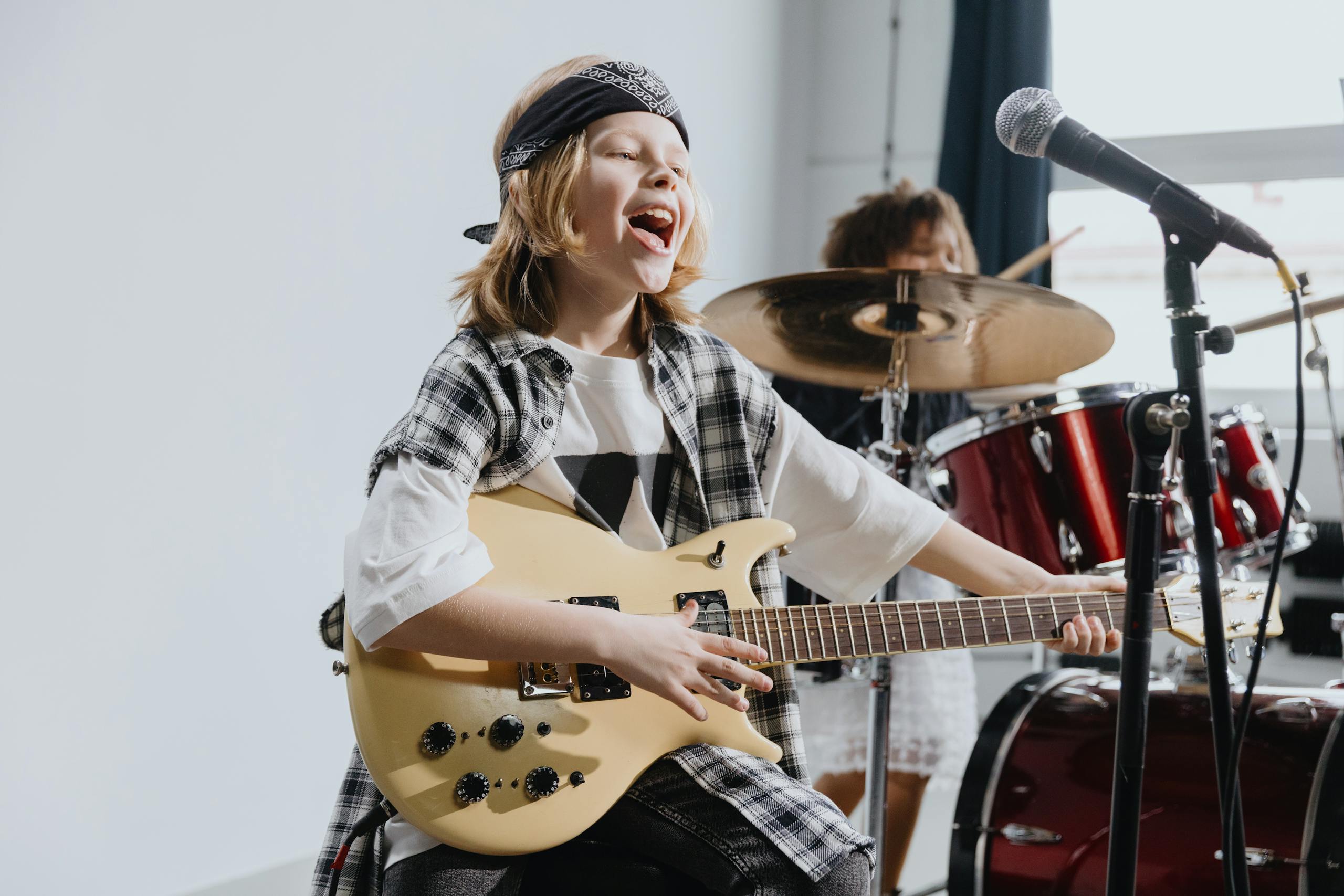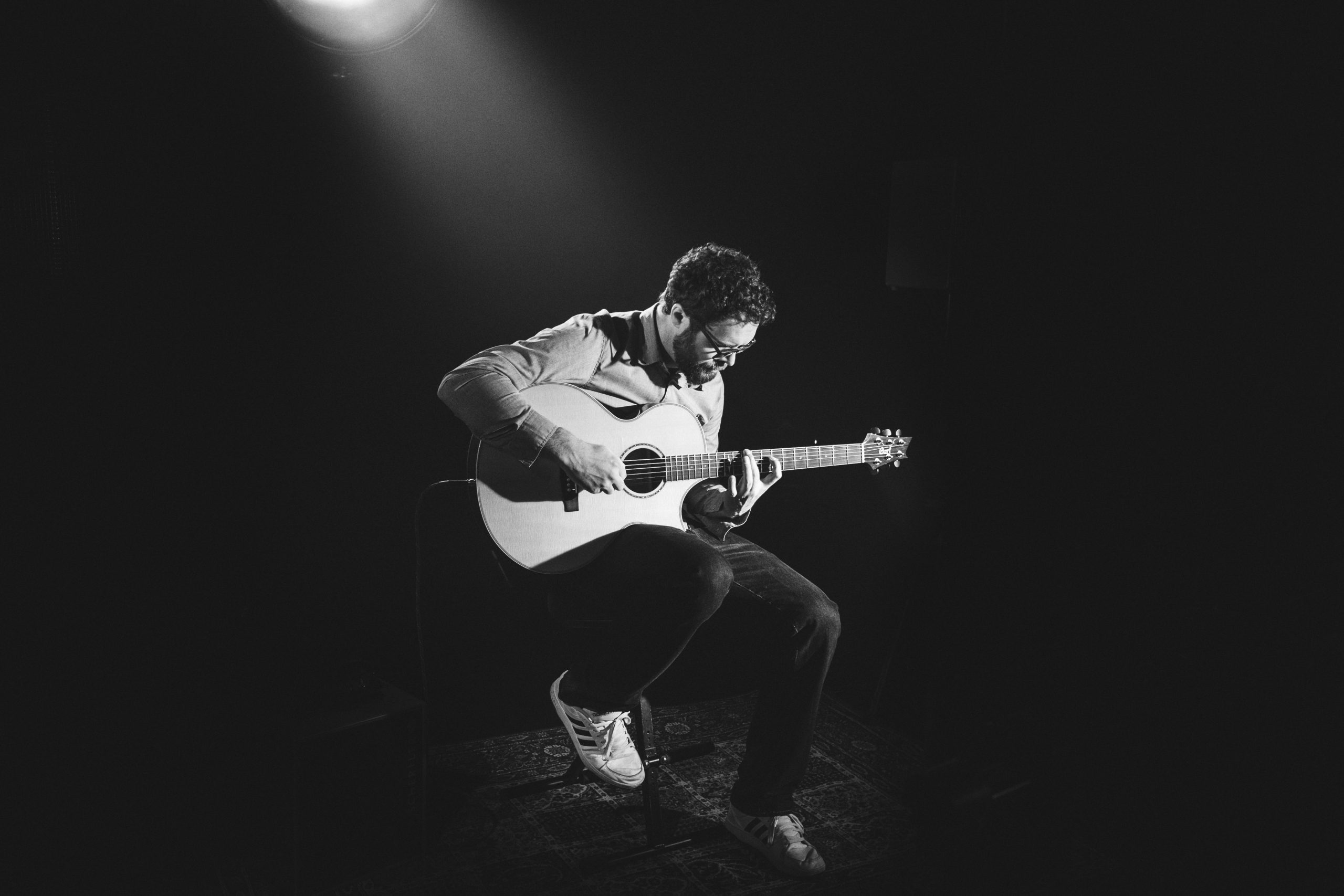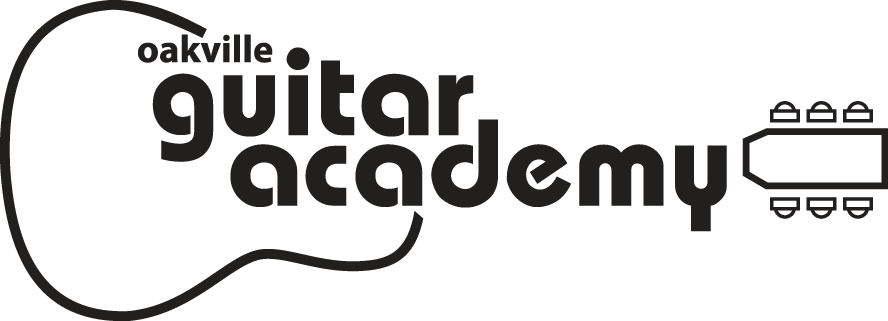Guitar Lessons for Kids 8+ to Adults, Beginner to Advanced
Guitar Lessons in Oakville
Learning guitar doesn’t have to be overwhelming. With 35+ years of teaching experience, custom lessons that match your goals, and a proven step-by-step methods, you’ll stay inspired, build lasting skills, and play songs you love.
About Oakville Guitar Academy
Since 1988, Oakville Guitar Academy has guided thousands of students through tens of thousands of lessons, fostering a lifelong love of music. A highly experienced and passionate instructor will craft tailor-made lessons that keep you fully engaged, blending essential skills with personal musical enjoyment. Our approach ensures that each student remains engrossed in the learning process while building a strong musical foundation and developing the independent learning abilities necessary for a lifetime of musical exploration.
About Oakville Guitar Academy
Guitar Lessons Tailored by Age & Interest.
At Oakville Guitar Academy, we offer lessons tailored by age, experience level, and musical goals. From young beginners to serious teens and motivated adults, every student gets a clear path, expert guidance, and the support to grow with confidence.

Kids 8+ – In-Person or Online
- Classical Guitar – Royal Conservatory Guitar Examinations
- Acoustic Guitar Lessons
- Rock Guitar Lessons
- and more

Kids 11+ – In Person or Online
- Classical Guitar – Royal Conservatory Guitar Examinations
- Acoustic Guitar Lessons
- Rock Guitar Lessons

Adult Guitar Lessons
- Classical Guitar – Royal Conservatory Guitar Examinations
- Acoustic Guitar Lessons
- Rock Guitar Lessons
Testimonials
“I love that my guitar teacher is so confident in me! It gives me great motivation!” Marcus
Blended Learning
Accelerate and Support Your Learning with Digital Tools
With blended learning, you get the best of both worlds — in-person guidance and powerful digital tools. Interactive notation synced with real performance video lets you see and hear exactly how the music is played. You can loop tough spots, slow things down, and practice at your own pace between lessons. It makes learning faster, more fun, and more effective, so you stay motivated and make real progress every week.
See and Hear Every Note
Notation scrolls in perfect sync with audio or teacher demo video.
Loop Selections
Focus on tricky passages by looping a few notes or bars.
Slow it Down
Practice at your own pace — speed it up only when you’re ready.
Questions
Free Trial Guitar Lesson
We believe in the power of a great first impression. That’s why we offer a free trial lesson for all new students. This initial session allows you to meet your instructor, experience our teaching style, and get a feel for what our lessons are all about.







